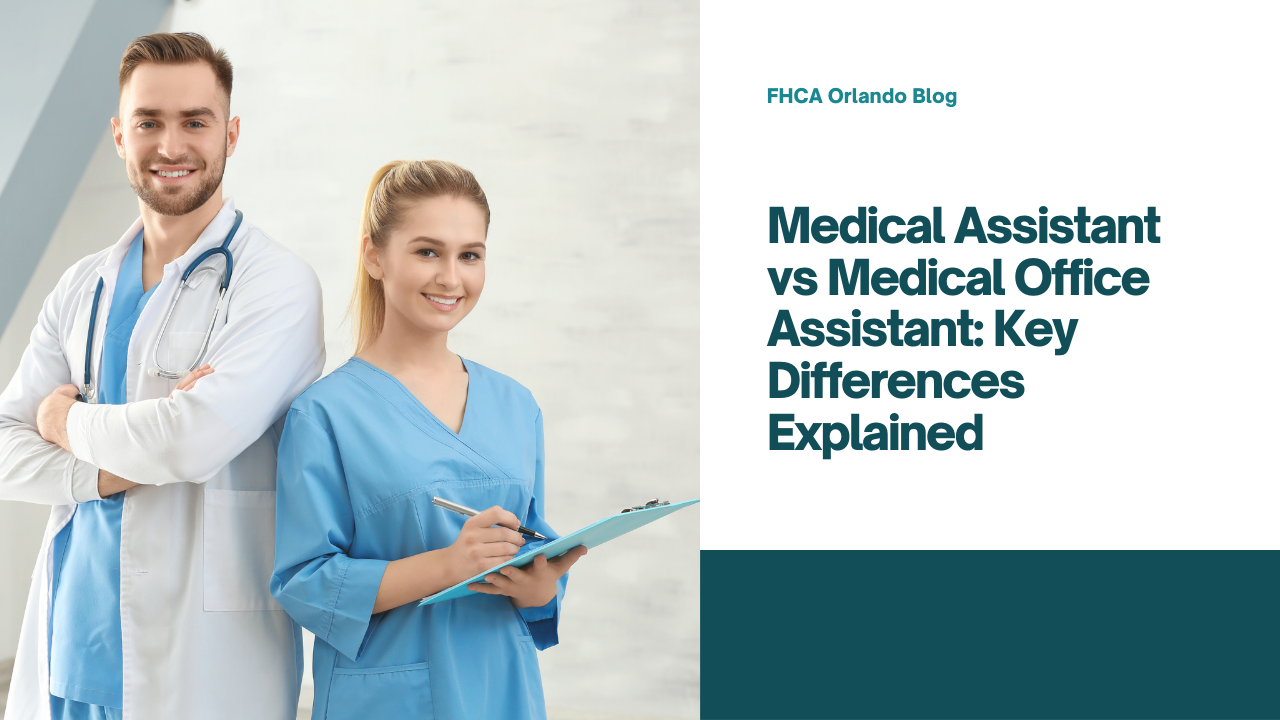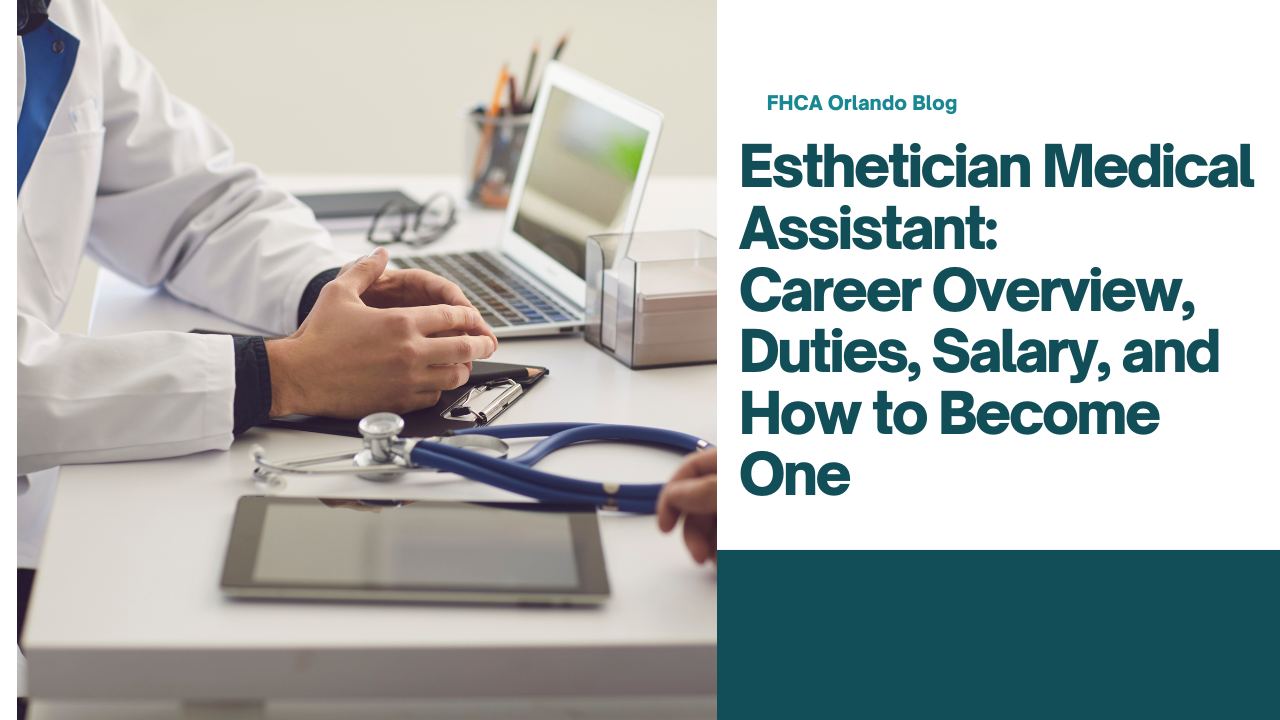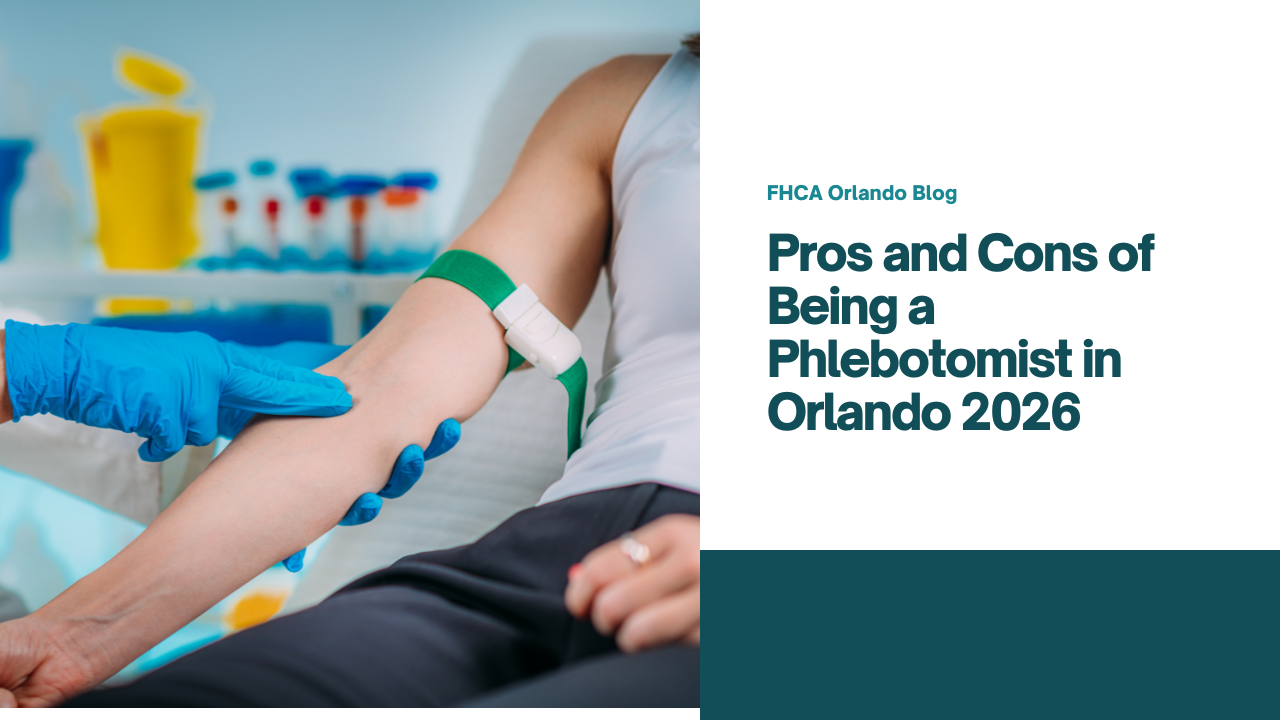Is a Medical Assistant a Healthcare Provider?
Oct 04, 2025
Medical assistants play an essential supportive role in healthcare settings, but we are not classified as independent healthcare providers. Instead, we work under the supervision of licensed professionals, such as physicians and nurses, by performing a blend of clinical and administrative duties, including taking vital signs, preparing patients for examinations, and managing records.
While we are indispensable to the delivery of quality care, medical assistants are not authorized to diagnose conditions, prescribe medications, or make independent medical decisions.
Table of content
- What is a medical assistant?
- What is a healthcare provider?
- Is a medical assistant considered a healthcare provider?
- How medical assistants fit into the healthcare system
- What sets medical assistants apart from licensed providers?
- Is a medical assistant a healthcare provider – FAQs
- Make FHCA the path to a medical assistant career
What is a medical assistant?
A medical assistant is a trained professional who supports physicians and other licensed providers by performing both clinical and administrative duties. Through our medical assistant program Orlando, you gain the skills to ensure efficient patient care; taking vital signs, preparing examination rooms, updating records, and coordinating office tasks.
Role and responsibilities
A medical assistant performs both administrative and clinical duties. From taking vital signs to scheduling appointments, we bridge patient interaction and office efficiency.
To understand the full picture, review what you learn as a medical assistant and see how this role combines hands-on skills with patient support.
Skills and training requirements
Students gain practical skills such as phlebotomy, EKG testing, and patient communication. We also train in administrative tasks like record keeping and insurance processing.
We also train in administrative tasks like record keeping and insurance processing. These soft skills for medical assistants prepare graduates to work effectively alongside doctors and nurses by enhancing communication, teamwork, and professionalism.
What is a healthcare provider?
A healthcare provider is a licensed professional or organization authorized to deliver medical care and treatment. This category includes physicians, nurse practitioners, physician assistants, hospitals, and clinics, and anyone or any entity legally qualified to diagnose, treat, and manage patients’ health needs.
Legal and professional definition
A healthcare provider is a licensed professional who is legally authorized to diagnose, treat, and prescribe.
According to federal definitions from HealthIT.gov, a healthcare provider includes individuals or organizations authorized to deliver or bill for medical services. This category covers physicians, nurse practitioners, and other licensed professionals.
Examples of licensed healthcare providers
Healthcare providers must hold a state license to practice. Examples include registered nurses, physicians, surgeons, physical therapists, and pharmacists. Each has the authority to deliver direct medical care under state and federal law.
Is a medical assistant considered a healthcare provider?
Medical assistants are not classified as healthcare providers. We work under the supervision of licensed professionals, such as physicians or nurse practitioners, by performing clinical and administrative tasks that support patient care but do not involve diagnosing, prescribing, or making independent medical decisions.
Legal status under Florida law
In Florida, medical assistants are not classified as licensed healthcare providers. Instead, we are recognized as allied health professionals who work under supervision. We cannot independently diagnose or prescribe.
Support role vs. Licensed practice
Medical assistants perform critical duties but always under the direction of a licensed provider. To learn more about the boundaries of the role, check this guide on what medical assistants can and cannot do.
How medical assistants fit into the healthcare system
Medical assistants serve as a vital link between patients and licensed healthcare providers. By combining clinical support with administrative coordination, we help ensure efficient operations, improve patient experiences, and strengthen the overall delivery of care within clinics, hospitals, and other medical settings. If you're curious about entering this field but still asking yourself is it hard to become a medical assistant? know that the right training can prepare you to play a key role in today’s healthcare system.
Working under licensed supervision
Every task a medical assistant performs supports the provider’s care plan. Whether assisting during exams or updating records, our work ensures physicians and nurses can focus on complex medical decisions.
Contribution to patient outcomes
By managing routine tasks efficiently, medical assistants improve patient flow, reduce wait times, and increase satisfaction. Our role enhances the overall quality of care, even though we are not licensed providers ourselves.
What sets medical assistants apart from licensed providers?
Medical assistants play an essential supportive role but differ fundamentally from licensed healthcare providers. While we perform important clinical and administrative tasks, we work under supervision and are not authorized to diagnose, prescribe, or make independent medical decisions, key responsibilities reserved for licensed professionals.
Scope of Practice and Limitations
Licensed providers diagnose, prescribe, and treat independently. Medical assistants, however, carry out supportive tasks such as preparing patients, collecting lab samples, or managing records. This distinction defines the profession’s scope.
Certification vs. Licensure
Certification confirms that a medical assistant has finished training and passed a national exam, while licensure is the legal permission to practice independently. Medical assistants don’t need a state license, but earning certification makes them more competitive. You can also review the medical assistant certification cost to plan your career investment.
Is a medical assistant a healthcare provider? FAQs
This section answers common questions about the classification of medical assistants within the healthcare field. It explains why we are not considered independent healthcare providers and clarifies the scope of our duties under licensed supervision.
Can a medical assistant prescribe or diagnose?
No. Medical assistants cannot prescribe medication or make diagnoses; these are reserved for licensed providers.
Are medical assistants part of the clinical team?
Yes. We are key members of the clinical team, but always under supervision.
Is certification required to work as an MA in Florida?
Certification is not legally required, but it is strongly preferred by employers for better job opportunities.
How can I start my career as a medical assistant?
The first step is to enroll in a medical assistant training program that provides hands-on practice and prepares students for certification exams.
Make FHCA the path to a medical assistant career
While medical assistants are not licensed healthcare providers, we are essential to patient care and healthcare delivery. Students gain the chance to work directly with patients, build skills, and grow within the healthcare field.
With FHCA’s medical assistant program in Orlando, students will gain clinical training, administrative skills, and certification preparation, all essential to stand out in the job market.









